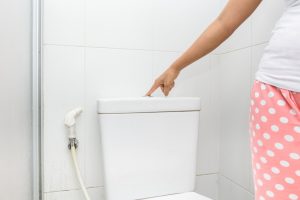
Some people pee more often than others, and there are numerous factors associated with increased frequency of bathroom trips, such as greater fluid intake or bladder problems, like urinary incontinence or a urinary tract infection. Knowing what’s going on with your bladder can give you some insight into whether your peeing habits are normal.
How often should you urinate?
This is a somewhat difficult question because there are many factors that determine the frequency of urination. Normal urination is considered between seven to eight times a day, but this can vary anywhere between four to 10 times a day.
Peeing over 10 times a day after drinking two liters of water could be a sign of a bladder problem.
Factors that can contribute to peeing include fluid intake, urinary incontinence, urinary tract infections, certain medications, prostate enlargement, pregnancy, menopause, cardiovascular problems, nervous system problems, overactive bladder, stroke, and caffeinated or alcoholic beverages.
How often should you pee at night?
Although tedious, peeing at night isn’t generally considered a problem if it occurs once in a while. If peeing at night becomes a regular routine, and you are going twice or more each night, it could signal a problem.
The same principals of daytime peeing apply to nighttime peeing, meaning if you are on certain medications, have certain conditions, or drink too many beverages prior to sleep this can all affect your nighttime peeing behavior.
Nighttime urination is known as nocturia and often overlaps with an overactive bladder.
To immediately deal with nocturia, you may want to cut back on fluids before bed, along with spicy foods at dinner. If this does not offer any relief, speak to your doctor about any underlying issues that could contribute to nocturia.
When to see a doctor for peeing frequency
You should see a doctor for your peeing frequency problem if you notice blood in your urine, your urine is dark brown, there is pain when urinating, there is pain in the groin or abdomen, you have difficulty urinating, you have an uncontrolled need to urinate, you experience a loss of bladder control, and you have a fever.